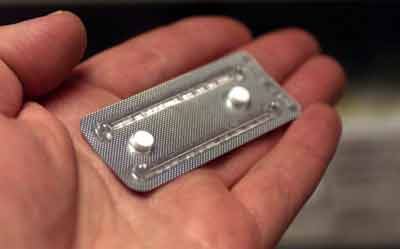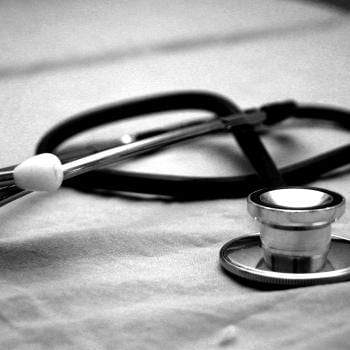With the controversy swirling around the German bishops story yesterday, a deacon reader thought it would be helpful to lay out church teaching on this subject.
Here, from the National Catholic Bioethics Center:
The “morning-after” pill, also known as “Plan B,” is often provided in hospital emergency rooms to women who have been sexually assaulted. It is typically used within 72 hours of the rape, and appears to prevent pregnancy in one of two ways. First, it can prevent ovulation (the release of an egg from a woman’s ovary), and for this reason, it is commonly termed “emergency contraception.” While this action of blocking the release of an egg is the most likely mechanism by which it routinely prevents pregnancy, another mechanism may also be operative under certain circumstances.
This second mechanism of action involves altering the lining of the uterus so it becomes less hospitable to the arrival of an embryo from the fallopian tube. In other words, if an egg has already been released from the ovary, and it has been successfully fertilized, the morning-after pill may be able to prevent that arriving embryo from implanting into the uterine wall.
Controversy exists as to the likelihood and frequency of this second mechanism of action, but even the Food and Drug Administration (the agency which gives official approval for the use of the drug) acknowledges the possibility on its website: “Plan B may also work by… preventing attachment (implantation) to the uterus (womb).” The package insert for the drug from the manufacturer (Barr Pharmaceuticals) uses identical language when explaining how Plan B works.
Significant ethical concerns are raised by this second mechanism, namely that “emergency contraception” may actually work as “emergency abortion” as well. When these ethical concerns are coupled with new state laws (notably in Connecticut and Massachusetts) mandating that the morning-after pill be provided by hospitals to all victims of sexual assault who request it, it becomes clear that medical professionals may have to confront situations of dramatic conscience violations because of this immoral form of legislative coercion by the state.
Some have argued that it may be immoral for Catholics to provide any contraceptive measures at all to a woman who has been raped. Such a view is incorrect, however, because a woman who has been sexually assaulted is clearly entitled to protect herself from the attacker’s sperm. The Church teaches that rape is not a unitive act that requires openness to procreation. It is rather an act of violence against another person, and the woman is allowed to take steps to prevent the possible fertilization of her own egg(s). It is permissible, then, for Catholic hospitals to provide their patients with morning-after pills if the following four conditions are met:
- The woman is not already pregnant from prior, freely-chosen sexual activity.
- The woman has been sexually assaulted.
- The woman has not yet ovulated (i.e. has not released an egg from her ovary into the fallopian tube where it could be fertilized by the attacker’s sperm).
- The morning-after pill can reasonably be expected to prevent her from ovulating.
When a woman arrives to an emergency room following a sexual assault, a simple urine test for leutinizing hormone (LH) can be used to gain information about whether she is ovulating. If it is determined that her LH levels have spiked and she is ovulating, the morning-after pill will not be able to block the egg’s release from her ovary. If it were to be administered under these circumstances, the morning-after pill might function to prevent the implantation of any newly conceived embryo(s), which would be the moral equivalent of an abortion. Under these conditions, therefore, the morning-after pill should not be administered.
The young boy or girl conceived through sexual assault is an innocent bystander, and he or she should never become a “second victim” of rape through chemical abortion. Women who conceive a child after sexual assault deserve full and loving support throughout and following their pregnancy. In follow-up studies where children are born from sexual assault, both mother and child frequently express satisfaction at not having adverted to the deadly answer of abortion.
Appropriate care for rape victims should thus include efforts to assess whether a woman may have ovulated (and thus possibly conceived) by taking her menstrual history, doing an LH test, and performing any other tests or interventions which, in the judgment of the physician, help establish prudential certitude that emergency contraception, if it were provided to the victim, would properly function as a contraceptive and not as an abortifacient.












